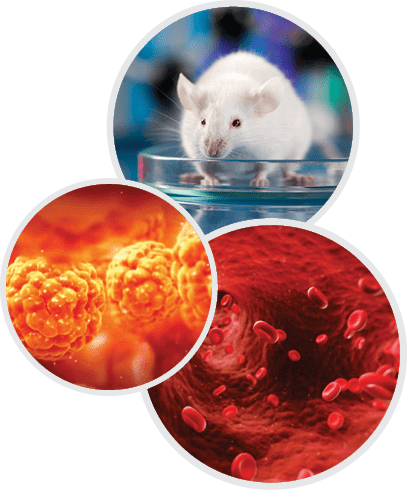The Obesity Epidemic:
How basic and translational research are paving the way to improved health
The American Physiological Society and InsideScientific are pleased to announce a joint webinar series focused on late-breaking research and discovery relating to the physiological mechanisms of obesity, cardiometabolic processes and obesity-related disease.

The series includes a number of live webinars hosted between June and December, 2020 focused on top science being conducted by leading obesity researchers from around the world. In addition, the program includes a number of Technology and Methodology webinars highlighting laboratory innovations and fundamental methods of studying physiological mechanisms central to obesity research and obesity-related diseases.

Lora Heisler, PhD
Chair in Human Nutrition
University of Aberdeen
Institute of Medical Sciences
Brain Circuits Driving Appetite
WED, JUNE 10, 2020 – NOW ON DEMAND
In many western countries, nearly a quarter of us meet the criteria for clinical obesity and more than half of us are overweight. This is a medical concern because obesity is a serious risk factor for many major chronic illnesses, such as heart disease, type 2 diabetes and cancer, and as a result, obesity is associated with reduced lifespan by almost a decade. The rapid escalation in the prevalence of obesity and the paucity of obesity medications underscores the necessity of an understanding of the basic neurobiology underlying body weight.
During this webinar, Professor Heisler will discuss brain circuits that are the main known controllers of body weight, such as those activated by the adipocyte hormone leptin. She will review how our genes impact our waistline and will discuss crucial genes such as those in the melanocortin system. Professor Heisler will discuss how obesity medications capitalize on this basic neurobiology to promote satiety, reduce hunger and decrease body weight.

Marshall D. McCue, PhD
Chief Scientific Officer
Sable Systems International
Utilizing Stable Isotope Tracers in Preclinical Models of Obesity
WED, JUN 17, 2020 – NOW ON DEMAND
Stable isotope analysis is a powerful tool for obesity research. Nutrients labeled with these tracers are nontoxic to animal models and can be continuously tracked in vivo. In this webinar, Dr. Marshall McCue will review stable isotope biochemistry, standard nomenclature, unit conversions and simple calculations. In addition, he will present case studies highlighting the use of novel laser-based stable isotople approaches to track 13C-labeled nutrient oxidation second-by-second in real-time. Dr. McCue will discuss how dietary (exogenous) and stored (endogenous) nutrients can be traced to identify several research questions, including how to tell if your animal is snacking on cached food and how do experimental manipulations alter oxidation of stored lipids.

Kevin Hall, PhD
Integrative Physiology Section Chief,
Laboratory of Biological Modeling,
NIDDK
Calories, Carbs, or Quality? What Matters Most for Body Weight
WED, JUN 24, 2020 – NOW ON DEMAND
Eating fat makes you fat. No, eating carbs makes you fat. Actually, it’s a simple equation relating calories in and calories out. Such endless debates about putative dietary culprits or cures for obesity have led to widespread public confusion and mistrust in nutrition science. But what is the truth? In this presentation Dr. Kevin Hall will discuss the physiology of body weight regulation and how we adapt to various changes in diet, including the amount of calories, carbs versus fat, as well as differences in diet quality varying in the amounts of “ultra-processed” foods.

Camilla Schéele, PhD
Associate Professor,
Novo Nordisk Foundation Center for Basic Metabolic Research,
Copenhagen, Denmark

Christian Wolfrum, PhD
Professor,
Department of Health Science and Technology,
ETH Zürich,
Zürich, Switzerland
Heterogeneity and Crosstalk of Human Brown Adipose Tissue
WED, JUL 22, 2020 – NOW ON DEMAND
Adipose tissues contain lipid-filled adipocytes but are also composed of several other cell types including adipogenic progenitors, endothelial cells, immune cells and neuronal cells. Brown adipose tissue (BAT) contains thermogenic adipocytes which produce heat in response to cold, an energy-consuming process. Today, it is well established that adipose tissue function is highly dependent on the plasticity of the tissue due to the interaction of different cell types present within the tissue. In addition, the function of adipose tissue is controlled by secreted factors, called adipokines or batokines. Some of these cytokines affect nearby cells within the adipose tissue while others are secreted into the circulation for communication at organ level. In this exclusive live webinar, Camilla Schéele and Christian Wolfrum will discuss broader aspects of brown adipose tissue and share late-breaking research relating to the role of BAT in whole body metabolic regulation.

Zhen Yan, PhD
Professor of Medicine
University of Virginia

Diego Bohórquez, PhD
Assistant Professor of Medicine
Duke University School of Medicine
Cravings and Weightlifting Squats – Technologies that Explore New Metabolic and Behavioral Research
WED, SEP 2, 2020 – NOW ON DEMAND
Join Dr. Zhen Yan and Dr. Diego Bohorquez as they present case studies demonstrating the use of automated home cage phenotyping for preclinical obesity research.
Zhen Yan, PhD – A Novel Voluntary Weightlifting Model in Mice for Resistance Exercise Research
Our understanding of the molecular mechanisms underlying adaptations to resistance exercise remains elusive, despite their significant biological and clinical relevance. To better understand these molecular mechanisms, Dr. Zhen Yan developed a novel voluntary mouse weightlifting model, which elicits squat-like activities against adjustable load during feeding. Dr. Yan will discuss acute and long-term effects of resistance exercise in the mouse model, including including enhanced muscle mass, muscle power, protein synthesis, autophagy, whole-body glucose clearance and insulin sensitivity.
Diego Bohórquez, PhD – A Gut Choice
Our motivation to eat sugars is thought to arise at the gut but how this happens is unknown. We discovered a neural connection between the surface of the intestines and the brain, which begins with a type of sensory cell that connects with the vagus nerve. We called them neuropod cells. We tracked this connection from the intestine to areas of the brain that control the pleasure of food. Animals, including humans, have an innate preference for table sugars over non-caloric sweeteners, even if taste is bypassed, and sugars are directly placed in the intestine. We wondered if neuropods are the main sensor to distinguish calories in sugars. Using a genetic trick called optogenetics, we paralyzed neuropods in the gut and found that animals (e.g. mice) lose the ability to distinguish sugars from artificial sweeteners. This gut sensor for calories is the portal for nutrients to drive our desire to eat and a new avenue to treat obesity and behavioral disorders linked to food.

Katsu Funai, PhD
Associate Professor for Physical Therapy & Athletic Training
Associate Professor of Molecular Medicine
University of Utah
Mitochondrial Membrane Lipids and Respiratory Efficiency
WED, SEP 16, 2020 – NOW ON DEMAND
During this exclusive live webinar, Katsu Funai will discuss how lipid composition of the inner mitochondrial membrane (IMM) modulates ETS efficiency to alter propensities for metabolic diseases. Specifically, he will share how his team is utilizing a sophisticated mitochondrial diagnostics platform to systematically examine the role of IMM lipids on the efficiency of each of the energy transfer processes of mitochondrial oxidative phosphorylation. In addition, he will review methodology and share findings of tissue-specific gain- or loss-of-function studies and discuss the role of these experiments in assessing metabolic health.

Ania Jastreboff, MD, PhD
Associate Professor of Medicine (Endocriniology & Metabolism) and Pediatrics (Pediatric Endocrinology),
Yale University School of Medicine
Anti-Obesity Pharmacotherapy: Where are we now? Where are we going?
THU, OCT 22, 2020 – NOW ON DEMAND
In this webinar, Dr. Jastreboff will discuss current use of anti-obesity pharmacotherapy, mechanisms involved, and agents in various stages of development with considerations for next steps. The presentation aims to inspire development of innovative therapeutics while optimizing use of existing agents to address the urgent need to effectively and sustainably treat millions of individuals with obesity around the world.

Lee Kaplan, MD, PhD
Director
Obesity, Metabolism, and Nutrition Institute
Massachusetts General Hospital
Why is Bariatric Surgery So Effective?
WED, DEC 2, 2020 – NOW ON DEMAND
Bariatric surgery is one of the most effective treatments of obesity in adults. Unlike many drugs prescribed for the treatment of obesity, bariatric surgery has a broad range of effects, including physiological impact on the gastrointestinal tract and gut microbiota.
In this final installment of our Obesity 2020 webinar series, Dr. Lee Kaplan discusses late-breaking research and reviews various mechanisms of action of bariatric and metabolic surgery and how they affect the regulation of energy balance and metabolic function.
Program Coordinators:

Liam Sanio
Event Coordinator, InsideScientific
Connect on LinkedIn

Andy Henton
Director, InsideScientific
Connect on LinkedIn